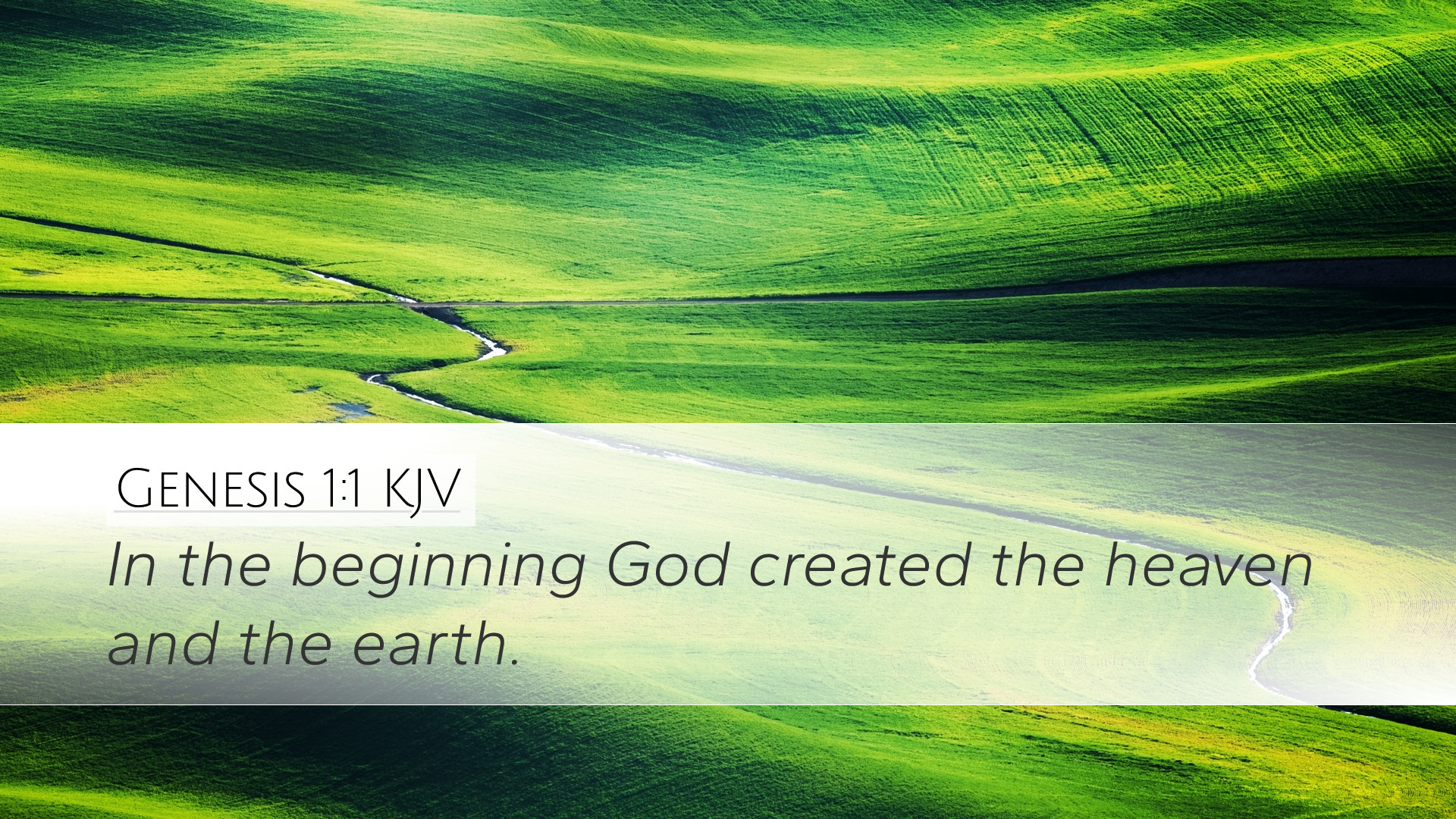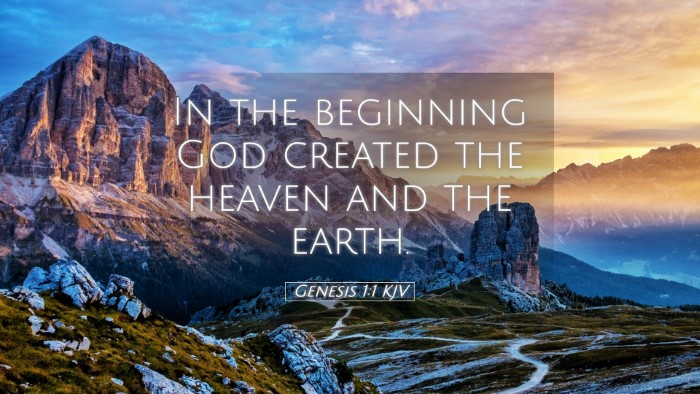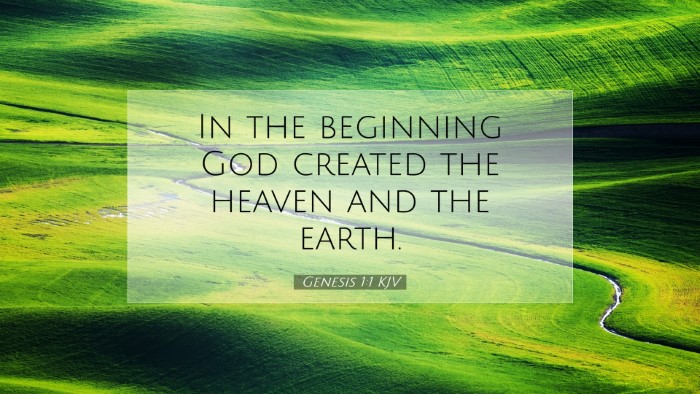Commentary on Genesis 1:1
“In the beginning God created the heaven and the earth.”
This foundational verse of the Bible establishes the framework for understanding the entirety of Scripture and the nature of God as the Creator. It serves both as an introduction to the book of Genesis and as a profound statement about the nature of reality itself.
Overview
Genesis 1:1 is one of the most impactful verses in the Bible. Its brevity belies its depth, encapsulating the essence of creation, the deity of God, and the origin of all things. The phrase “In the beginning” signifies the absolute start of time and creation, while the declaration that “God created” affirms His sovereign power and intentionality in bringing forth the cosmos.
The Meaning of “In the Beginning”
Matthew Henry comments that this phrase denotes the commencement of all temporal existence. Before this moment, there was nothing but God. He emphasizes that “the beginning” is not defined relative to time as we understand it; rather, it indicates the initiation of all that exists.
Albert Barnes further notes that the term implies not just a point in time but suggests a divine plan and purpose. The world did not emerge accidentally; it was established by God’s sovereign will.
The Character of God
In this verse, God is the central figure. Adam Clarke emphasizes that it is essential to recognize God’s eternal nature and His independence from creation. God existed before creation, and He is the source of all that is. This serves as a fundamental tenet in Christian theology, establishing that God is uncreated, self-existent, and the ultimate cause of everything.
Henry asserts that the use of “God” (Elohim) here denotes not just the singular deity but suggests a richness of unity and complexity within the Godhead, pointing to the Christian understanding of the Trinity. This term suggests that the creation involved a divine deliberation and power beyond mere thought.
“Created” - A Divine Act
The verb “created” carries profound significance. Clarke explains that it implies a direct act of God’s will. Unlike human creation, which often involves rearranging existing materials, God's creation is ex nihilo (out of nothing). This concept affirms God’s omnipotence and His ability to bring forth existence by His mere command.
Henry elucidates that creation here involves both the heavens and the earth, encapsulating the entirety of the universe. The implications of God’s creative act extend beyond mere physical creation to include order, purpose, and design in the cosmos.
The Heavens and the Earth
The phrase “the heaven and the earth” is a merism, meaning it encompasses all of creation. Barnes highlights that this indicates not only the material world but also the spiritual realm. The heavens represent the celestial and unseen realities, while the earth signifies the physical, tangible universe.
This duality shows God’s dominion over all realms of existence, urging a recognition of His lordship over both the seen and the unseen. Clarke observes that this assertion fosters a comprehensive understanding of God's sovereignty and creative authority.
The Theological Implications
- Creation vs. Evolution: This verse stands in contrast to evolutionary theories that propose a naturalistic origin to the universe. The assertion that “God created” challenges the ideas of chance and randomness, presenting a Creator who actively participates in the formation of the cosmos.
- The Basis for Worship: Recognizing God as the Creator of all things forms the basis for worship. It instills a sense of awe and reverence, leading believers to acknowledge their dependence on God for existence and sustenance.
- Human Significance: If God created the heaven and the earth, then humanity's existence holds intrinsic value. Each person is made in the image of God, an echo of the creative work that governs the universe.
Conclusion
Genesis 1:1 serves as a profound declaration that frames the entirety of biblical revelation. It impacts both the understanding of God and the origin of the universe. As modern pastors, students, and theology scholars ponder this verse, they are encouraged to reflect upon its rich implications, which point to a God who is both transcendent and immanent—beyond creation yet intimately involved in it.
This verse invites believers into a relationship with the Creator who not only initiated existence but continues to sustain and govern it with purpose and intention.


